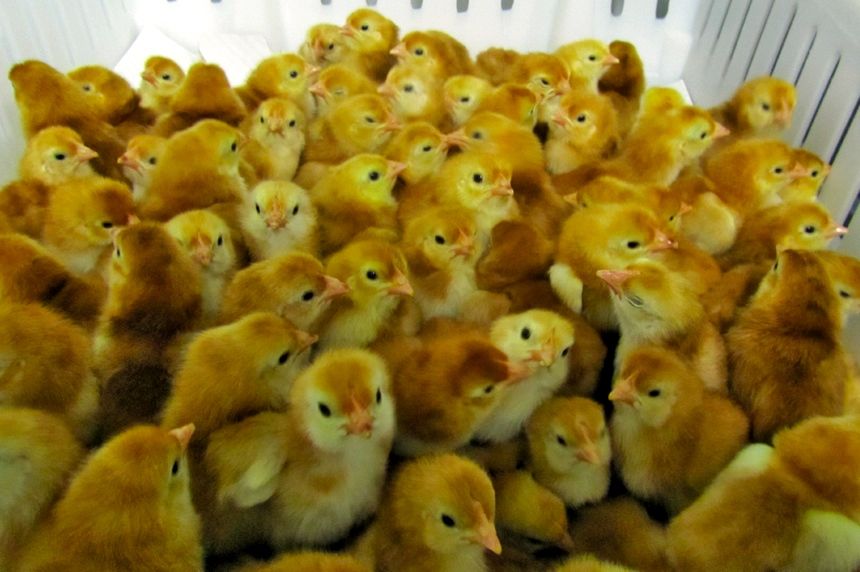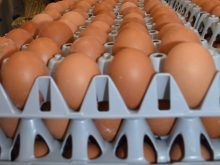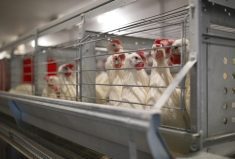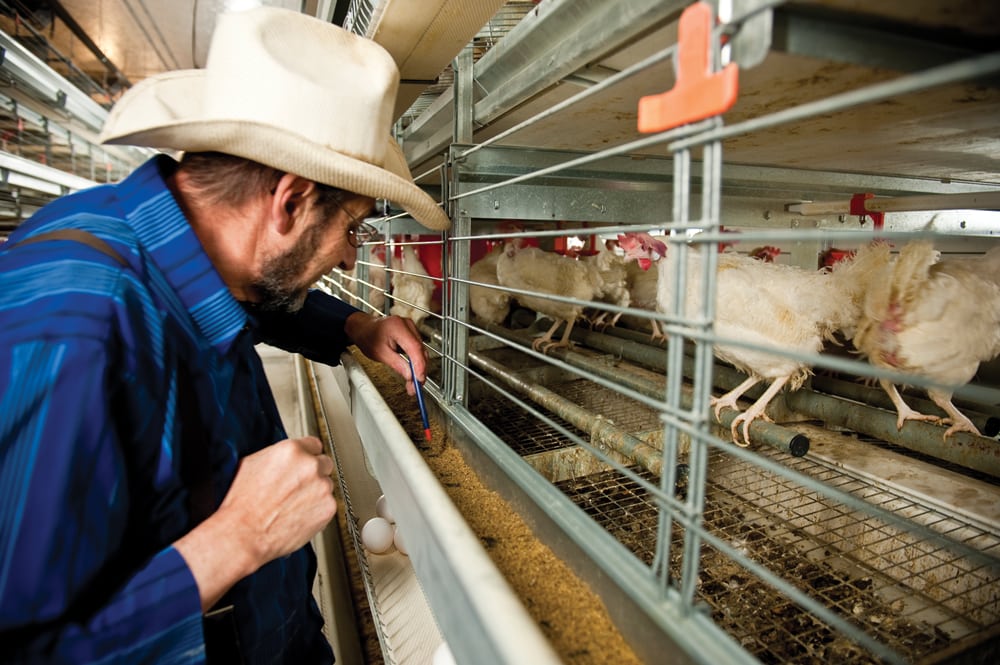An outpouring of community support has saved a rare — and potentially priceless — collection of heritage chickens.
“It’s amazing how much the general population wants to support the chickens and how much they understand about genetic preservation,” said Agnes Kulinski, business director of the University of Alberta’s Poultry Research Centre.
Two years ago, when the centre’s program to preserve heritage chickens was threatened by budget constraints, Kulinski did a market analysis and wondered if it could tap into interest in local food and the varieties grown or raised by generations past.
Read Also

Farming Smarter receives financial boost from Alberta government for potato research
Farming Smarter near Lethbridge got a boost to its research equipment, thanks to the Alberta government’s increase in funding for research associations.
“People signed up without even knowing what it was about,” she said. “They wanted to support the genetic preservation.”
There are now 400 people in the Edmonton area — with another 400 on the waiting list — who pay $150 a year to “adopt” a heritage chicken. In return, they are rewarded with 24 dozen eggs in a 10-month period. The program is especially popular with retired farmers who have recently moved to the city and families with young children, said Kulinski.
“They want to pay extra to support the program,” she said. “The eggs that you get in a store are $3 a dozen and these are $6.25. People and the industry are very supportive. They understand the importance.”
- From the Manitoba Co-operator: Heritage chickens help raise funds with eggs
The centre houses several breeds on Rare Breeds Canada’s endangered species list: Barred Plymouth Rock, Light Sussex, New Hampshire, White Leghorn, and Brown Leghorn, as well as two varieties from the lines of famed Ontario chicken breeder Don Shaver used to breed the original commercial chicken. They are descended from birds that arrived at the centre two decades ago. They’ve never been bred for any specific trait, are suited for both meat and egg production, and are “the same kinds of chickens that our grandparents had on the farm,” said Kulinski.

But they are not kept for nostalgic reasons.
“They’re a backup if anything happens to the industry chickens,” she said. “They have the genetic variability, so if anything happens, you can look for the genes to help the commercial breeds.”
Since modern commercial chickens are bred from just a few lines, older ones may one day be needed if, for example, a new strain of avian influenza threatened poultry production.
“There hasn’t been too much research done on heritage breeds, so we don’t know if they are resistant,” said Kulinski. “But we do know that there is a potential that they have the disease-resistant gene.”
Those who adopt heritage birds can’t actually visit them, but get updates through email and Facebook.
“Because of the biosecurity, we can’t really take people into the barns. So we’re trying different methods. People just really enjoy the program.”
However, this spring the centre started a pilot partnership with Peavey Mart to distribute day-old chicks to western Canadian farmers. Interested farmers pre-ordered their chicks and picked them up at Peavey Mart stores in Spruce Grove, Leduc and Red Deer.
“It’s another opportunity to create awareness and generate revenue,” said Kulinski. “I think it’s a great partnership for us because we can’t really bring farmers here because of the way that we’re set up, because of biosecurity reasons. It gives us another means of preserving these breeds and generating some revenue.”
Anyone looking to pre-order heritage chickens can do so at www.heritagechickens.ca.
















